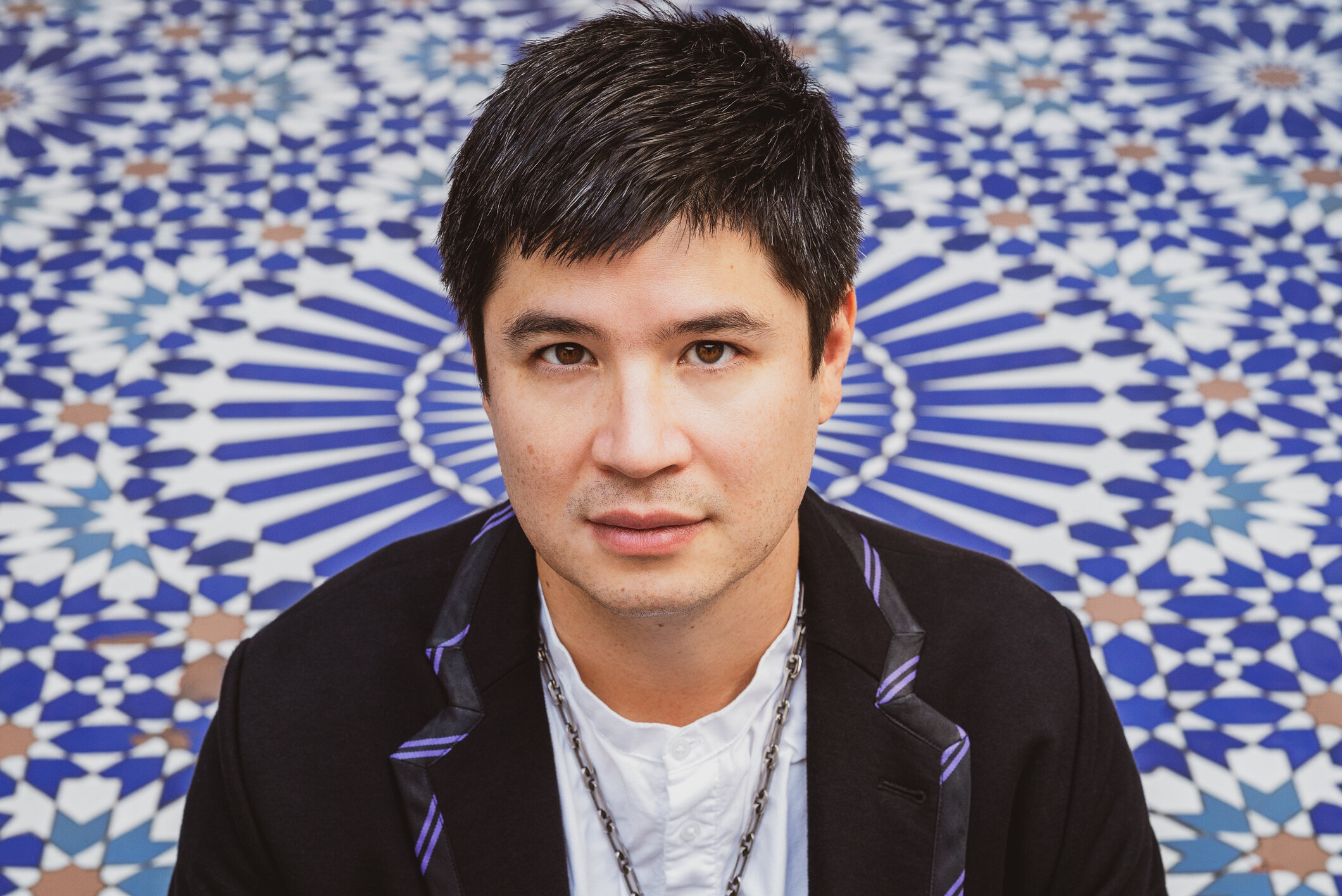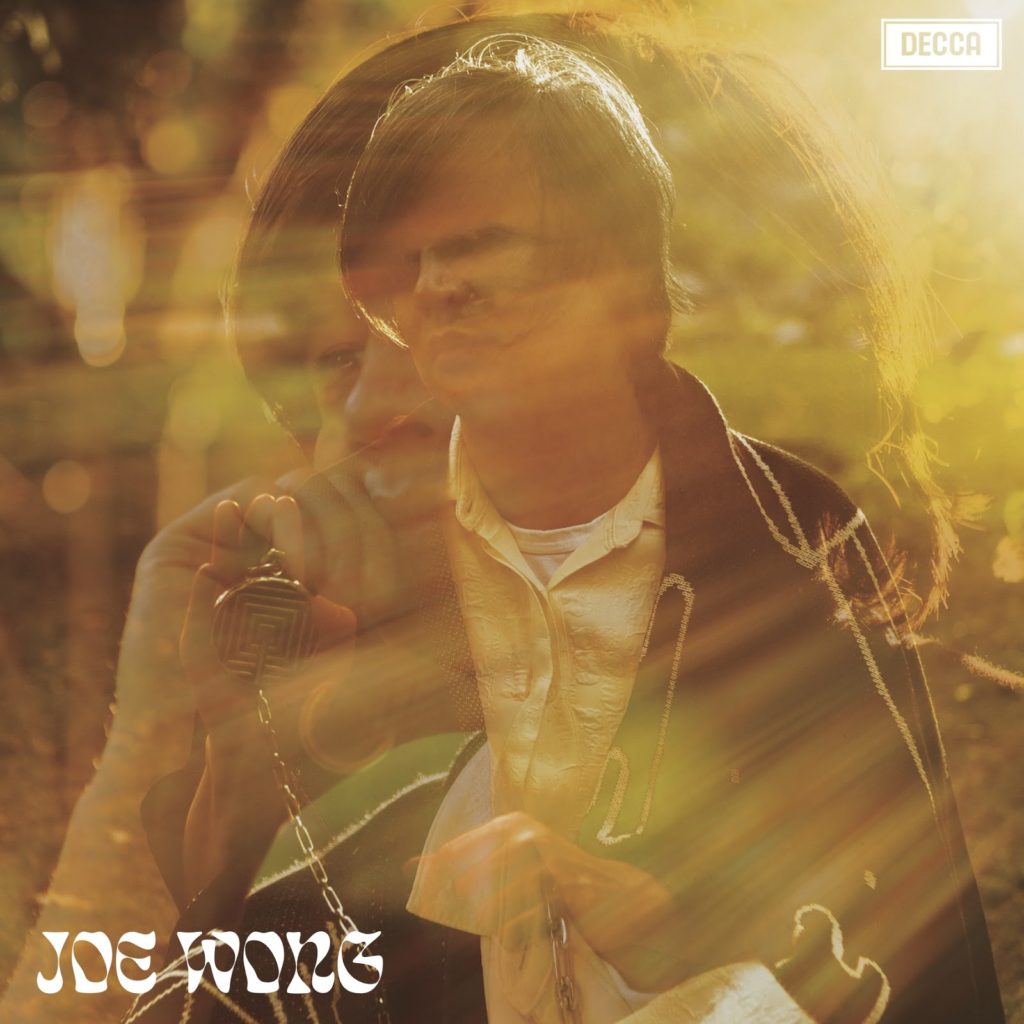Joe Wong may just have released the album of the year with debut release Nite Creatures, a sumptuous solo album of ten baroque, psychedelic songs. Jason Barnard speaks to the LA based multi-instrumentalist, singer and composer.
Firstly Joe, I hugely enjoyed listening to Nite Creatures. Although you’ve been composing music for other projects for over a decade, it’s only now that you’ve released your debut. Why so long?
Thank you very much! I’ve wanted to make a solo for a long time, but I only recently developed the tools to circumvent my crippling self doubt.
How does composing for film/TV compare with recording your own material? Was there anything that you’ve composed for film/TV that you brought over into solo work or vice versa?
I liken composing for visual media to working as an architect. You’re building an environment in which someone else has to live. The work has to fit on a specific plot of land, it has to function in a specific way, and someone else is funding it and is thus the ultimate arbiter of its quality. You are but one member of a large team. Of course, the goal is always to make a creative statement within these parameters, and many times the limitations are liberating.
If scoring is architecture, making solo work is sculpture in the sense that it can be done in solitude with no input from anyone. In my case, this environment is fertile ground for my neuroses and crippling perfectionism/self doubt. I don’t find these tendencies to be particularly healthy, so I found it incredibly helpful to employ some of the structures I’d learned in my career as a composer—namely deadlines and hiring a producer (the great Mary Timony). Having a finite amount of time in which to work and another person in the room to bounce ideas off proved to be the winning strategy to circumventing my self-destructive tendencies.
What was the writing and recording process for Nite Creatures?
For about six months, I wrote a song each morning. I’d sit with a bass or at the piano and just record the first thought that came to mind into my voice memos. Later, I culled through the memos and selected the songs which felt most promising. Mary and I tracked the basic tracks at Gato Trails Studios in Joshua Tree, CA. I tracked the bulk of the vocals at home because I was too self conscious to sing in front of even a good friend. The orchestral session was recorded at Henson Studios (previously A&M), in the room where “We Are The World” was recorded.
The lyrics of the album have a melancholia and seem to reflect loss.
The album was written as my father was dying. I didn’t consciously set out to write about the experience of losing someone slowly over time. When I was rehearsing with my band, though, we took a break and everyone was talking about existential dread and loss. It was then clear to me what the album was about.
Your sound recalls Love’s Forever Changes, The Zombies and 60s psychedelia at times. Were those bands an inspiration for you when making the record?
Those bands are certainly part of my musical DNA—Love is my favorite LA rock band and I’ve spent countless hours listening to The Zombies’s Decca singles, Odessey, and One Year. Beyond that, I hosted a Zombies concert in Palm Springs directly after the final basic tracking session. Mary and I were driving to Ace Hotel to meet Rod and Colin and listening to rough mixes. The vocal melody of “Dreams Wash Away” came to me on that car ride.
Did you use vintage analogue equipment?
Everything was recorded using vintage instruments, microphones, and preamps. The strings were recorded using a Decca Tree configuration, and the drums were recorded with three-four mics, using a Glynn Johns overhead configuration. That said, it wasn’t my intention to make a vintage-sounding album. Dave Fridmann was the perfect mixer to add a futuristic sonic quality.
The album features strings which give a grand scale, for example on the Scott Walkeresque title track. Was it important to have real strings?
Yes, it was important to me to use all real strings and horns. Some of the sample libraries available are quite good, but music is an inherently social endeavor, and I love the experience of working with a large group of incredible musicians in an acoustically beautiful room. I worked with Paul Cartwright to arrange the scores. We spent a few months on the arrangements, but the actual recording only took about two hours—after which the songs felt complete.
Who did you collaborate with?
Mary Timony was the ideal producer for the project, we share an aesthetic sensibility; and she’s been making incredible records for over 30 years. She’s one of my closest friends and I trust her judgement.
Dave Fridmann mixed the album. I’ve been a fan of his ingenious production for a long time, and we’d previously worked together on Parts & Labor’s final album. He gave the album a futuristic sheen.
Jon Natchez, Mary Lattimore, Anna Waronker, Craig Wedren, Paul Cartwright and Ashleigh Lockerbie are people I encounter in the film and music communities here in LA; so I was fortunate enough to call on them when there were opportunities uniquely suited to their skillsets.
Many people will be familiar with ‘Dreams Wash Away’ as it was used for the finale of Netflix’s The Midnight Gospel. How did you feel about its use?
In late 2019, we played the songs for the first time. Duncan, one of the co-creators of The Midnight Gospel was in attendance and asked to use “Dreams Wash Away” for the series finale. The episode is centered around a conversation he had with his mother as she was facing her own mortality, so I couldn’t think of a more appropriate use of the song and was elated to contribute it to the show.
There are a lot of people who’ve already done covers on YouTube of ‘Dreams Wash Away’. Is it inspiring that you’ve touched other people with your song?
Yes, the fact that the song resonates with people is incredibly gratifying. I feel fortunate on a visceral level that I have the opportunity to make music and be heard.
What other tracks from Nite Creatures would you highlight for first time listeners?
“The Long Parade” is one of my favorites to play live. It’s the most understated song on the album production-wise, but something about the melody haunts my mind whenever I sing it.
In addition you’ve remade the Double Fantasy track ‘Every Man Has A Woman Who Loves Him’.
I was asked to select a song from Double Fantasy to celebrate the 40th anniversary of its release. I’ve always loved “Every Man” and felt that it was underappreciated. The interplay between Tony Levin and Andy Newmark is brilliant, and Yoko’s lyrics are profound. And John’s ghostly backing harmonies are pure genius.
Can you tell me about your background and how that shaped you?
I grew up in Milwaukee, WI. My mother was a nurse and my father a restauranteur. Neither of my parents played instruments. Both enjoyed music, but we didn’t have a massive collection. As far back as I can remember, I was drawn to music. One of my earliest memories is watching the “Thriller” video over and over on VHS. When I was six, I began playing piano. Then, in school, we were given the opportunity to play in band and orchestra; I played violin and clarinet. When I started playing drums, though, it was clear that drumming would be my vehicle into the world. Finally, I could hear the connection between what I was playing and what I was listening to; it felt as though I could participate rather than just appreciate. As a teenager, I was drawn to “outsider/avant” music, ranging from punk rock to The Shaggs to Albert Ayler and Ornette. I was inspired by the DIY model laid out by artists like Fugazi and labels such as Dischord, SST, and Alternative Tentacles. This gave my bands the blueprint to book our own tours and travel the country as teenagers. I briefly attended Berklee—which at the time was pretty much the polar opposite of the DIY community, but that was kind of the point. I wanted to explore other models of creation. The first film I scored was released 18 years ago, and since then I’ve had concurrent careers as a composer, touring band member, and interviewer. What I love about the paradigm in which we exist is that artists have to be more versatile and diversified than in the past, when you could be excellent at just one thing. I like straddling different worlds and interacting with different communities.
What are the highlights from your time in music?
Playing drums for the first time, touring the world and making lasting friendships, hearing my film scores recorded by orchestras, seeing films I’ve scored in a movie theater. The most incredible feeling I’ve had in recent years was singing for the first time as we played Nite Creatures live. It was so intense that I entered an alternate consciousness.
I’ve found having a podcast enables me to talk to interesting people and share their stories. Can you tell me more about The Trap Set Podcast?
I was on tour as Marnie Stern’s drummer in 2013—a particularly difficult period for me personally and professionally. I loved playing with Marnie, but I found myself feeling disconnected from the joy of listening to music. I began listening to podcasts in the van and found them compelling; I especially related to the desperation in the early episodes of WTF with Marc Maron. At the end of one of the legs of the tour, the band was invited to watch a taping of Saturday Night Live. Also at the taping was Brendan Canty. Brendan is someone who has done everything I want to do professionally, balanced with raising an enormous family. I cornered Brendan at the afterparty and essentially asked him for life advice for hours. It occurred to me that this conversation could possibly make for an interesting podcast, so a few months later, when Brendan was in Los Angeles, I recorded the first episode of The Trap Set. For the first 200 episodes, I interviewed drummers exclusively. I felt that—even if I’d never met the guest before—the fact that we were both dedicated to the same vocation would garner an instant familiarity. This proved to be largely true, and the focus of the show—rather than the craft of music making itself–was how people navigate life. The act of engaging in a long, substantive conversation with someone every week had an astounding impact on my life. Each episode served as a rung of a ladder out of a pit of creative and personal despair. I don’t think I would have made an album without first making the podcast.
How has the pandemic affected you and what your plans for the rest of 2021?
Aside from canceling our tours, my day-to-day life hasn’t changed much. I’m fortunate to work from home, and I’ve been lucky enough to compose on several interesting projects during lockdown. That said, I think that human interaction is one of the most important raw materials for art. I miss people. I miss concerts! For plans I’d like to complete Album #2.
Thank you Joe – congratulations on making a brilliant album that will stand the test of time.
Thanks for the opportunity!
Nite Creatures by Joe Wong is available on limited edition, deluxe vinyl album and on all digital service providers. More information can be found at: nitecreatures.com



